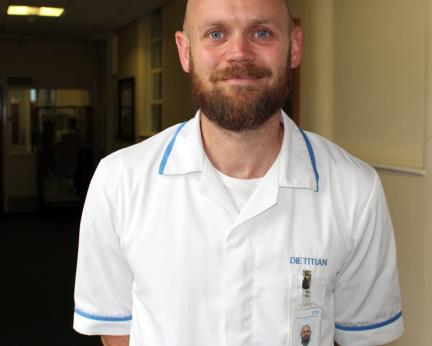Being a dietitian is a really good career because it can be as varied as you would like it to be. One day, I will be seeing patients, the next I will be teaching nursing staff, junior doctors and other AHPs or involved in research projects.
Being a critical care dietitian, I see patients at their worst and help them through this period with nutrition support. There is nothing better than seeing them leave the critical care unit and working with them on their journey to recovery.
Managing time between clinical and non-clinical work is my biggest challenge. I always put my clinical work before non-clinical. However, some of the non-clinical work such as guidelines, protocols and research projects are just as important and I need to be disciplined to make time to work on these.
At the time of writing this, my clinical work has been dominated by looking after Covid-19 patients. These have been challenging times. There have been lots of logistical changes such as wards becoming critical care units, redeploying non-ICU staff and upskilling them in a short space of time, big demand on enteral feeds (sterile nutritional liquid which is designed to be administered via a feeding tube) and pumps and wearing full personal protective equipment (PPE)!
Despite these additional pressures, our sole focus is our patients and supporting their recovery from the virus. I was involved in planning for the additional parenteral feeds and feeding pumps we were likely to need. I had to quickly write a guide on critical care dietetics and delivered intensive training with identified team members to ensure they had the necessary knowledge and skills to look after a Covid-19 patient. And as clinical lead for making sure patients on ventilators are fed through a nasogastric tube, or intravenously, I was responsible for making the right decisions, with the support of the other acute clinical leads.





